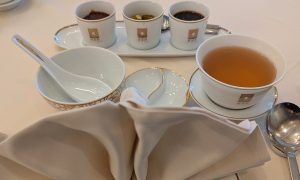When interacting with Malaysians, bear in mind that it is a multicultural country, so practices vary between the different cultural groups. It will help your integration into Malaysian culture to recognise and respect the diverse cultural and religious customs. Below we outline some guidlines to help you avoid offence, but do use your judgement and observation skills when deciding how to proceed. If, however, you are feeling utterly frustrated, bamboozled and miffed by Malaysian manners, you may need to check out our handy guide to Culture Shock!
Shoes are commonly left at the front door of houses and some other buildings. A collection of shoes at the door means you should probably remove yours. Another sign is if you notice you are the only one wearing shoes!
Many Malaysians greet each other with a light handshake, and may place their right hand over their heart after greeting you. Watch what happens and follow their lead. Be aware that some Muslims prefer not to shake hands with memebers of the opposite sex, so it’s always safer to let them initiate the greeting.
Presentation of business cards or name cards often follows an introduction. It is considered polite to inspect a card carefully before putting it away, and in meetings these are often placed neatly on the table in front of the recipient. It is your perogative whether you give out your card and to whom; use your discretion and excuse yourself for not carrying any of your own if you feel you’d rather not share your contact details.
Displays of physical affection in public are generally frowned upon, particularly in the more conservative eastern and northern states. Take your lead from those around you, and err on the side of caution if in doubt.
Certain areas of mosques and temples should not be entered by those of different faiths. Signs are often displayed and you can always ask those around you if you are unsure. Conservative dress is always required in mosques, and some temples, and you will often be required to remove your shoes.
Many older people are simply referred to as uncle (pakcik) or aunty (makcik). People younger than you may address you in this manner – take it as a compliment and a sign of respect.
Some Malaysians eat with their hands, especially when eating more traditional types of food. If you’d like to dump the cutlery and give it a try, remember to use only the right hand – the left is used for more basic bodily functions!
While eating, paying in a shop, shaking hands, or any other transaction, use your right hand. The left hand is considered unclean.
If invited to a Malaysian home, the host will be most appreciative if you come bearing gifts, though this is not a must. Whatever you choose to bring – be it a souvenir from back home, some fruits or drinks purchased from a store around the corner – will be accepted with warm thanks. Bringing a gift is known as carrying “buah tangan”, which literally means “fruit of the hands.”
Many Malaysians are superstitious, and there is a fascination with lucky and unlucky numbers. As an example, never give four of anything to a Chinese Malaysian (four sounds like the word for “death” in Chinese).
The Chinese word kiasu is loosely translated to mean a fear of missing out. This surfaces in many situations – drivers being aggressive on the road, wearing branded clothes and accessories, using mobile phones loudly, and piling one’s plate the highest at a buffet. What does it all mean? It’s about keeping up with the Jones, as a declaration of social status. This doesn’t mean expats have to be kiasu, but being aware of its presence will help you understand many situations.
As in many Asian countries, Malaysians don’t often show anger in public. When others do, many Malaysians are unsure of what to do next. Remain calm, firm, and avoid shouting when things do not go your way.
Many Malaysians take a more relaxed view of time and deadlines than you may be used to. When meeting friends don’t be surprised if you arrive on time to find yourself alone perhaps for another 30 minutes. Events will also often start later than billed. In the business world, however, punctuality is advised and an apology and excuse (it’s common to blame the traffic) are expected if you arrive late.
Face is difficult to explain, but most Malaysians do not like to “lose face”, which means they want to avoid embarassment and humiliation at all costs. You can “give face” by being understanding if something goes wrong – by not reminding people of this, by compensating for small mistakes and by averting attention from failings. Humility is another aspect of face – be honest about your faults and modest about your achievements.
"ExpatGo welcomes and encourages comments, input, and divergent opinions. However, we kindly request that you use suitable language in your comments, and refrain from any sort of personal attack, hate speech, or disparaging rhetoric. Comments not in line with this are subject to removal from the site. "


















